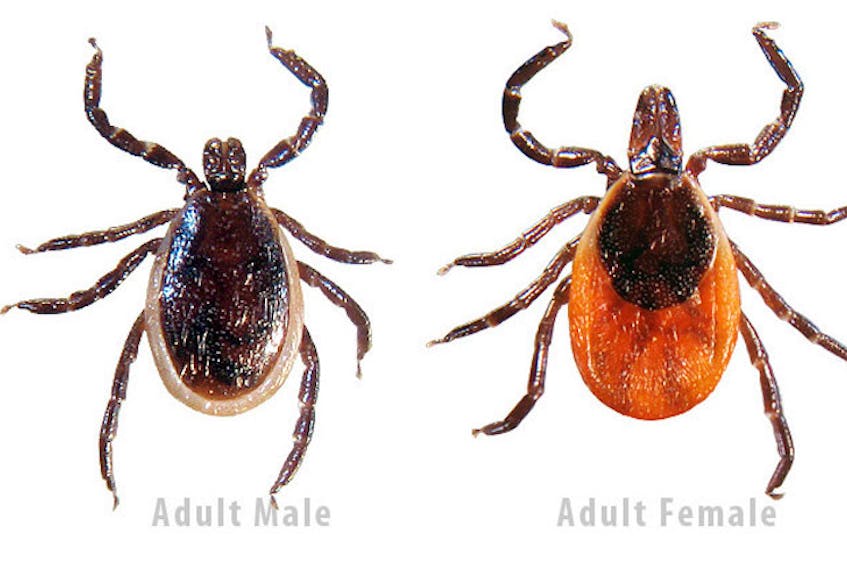SUMMERSIDE, P.E.I. — It's tick season in P.E.I.
Pet owners have already started treating and checking for ticks on their outdoor-loving critters.
Courtney Hogan-Chandler, a veterinarian at the Summerside Animal Hospital, said awareness is key.
“Now that we are getting into spring, we talk to all clients that come in about ticks. They can survive in temperatures above 4 C, so it is important that clients are aware of them,” she said.
Michelle Evason, veterinarian and internal medicine specialist at the Atlantic Veterinary College (AVC) said ticks are expanding their range north. Once temperatures hit 4 C or warmer, the eight-legged pests become “very eager for a blood meal”.
Hogan-Chandler has also seen an increase in the pest.
“We are getting more and more ticks on P.E.I.," she said. "A few years ago, we never used to have any. Now we are getting about 15-20 dogs per year coming in with ticks on them.”

Risky region
Tick-carried illnesses are the focus of Evason’s research at the AVC and she confirmed P.E.I. is considered a Lyme disease risk region, which means ticks carrying the Lyme disease bacteria have been found on pets that have never left the Island.
Hogan-Chandler said the most common areas to find ticks are wooded areas, fields and tall grass, but said she’s had people come in with a tick on their dog that was just in the back yard.
Experts don’t know yet if the carrier species deer-ticks, also called black-legged ticks, live on the Island year-round, or if they were just carried to the Island by travellers or birds.
However, not every tick carries Lyme disease, and not every bite from a carrier tick will result in the illness in pets, said Evason.
Regardless, dogs, outdoor cats and horses are the pets most at risk and should be checked for ticks regularly.
“Most of the time, when they attach, they’re going to attach around the ears, the head or the neck or places like the armpit or the groin on a dog, the hot spots," said Evason. "That’s true for people too.”
Both Evason and Hogan-Chandler recommend using a tick-prevention product.
If a dog is treated, then the ticks won’t be entering the home and crawling around “looking for a human to eat”, said Evason.
“That’s actually a really great way to keep people safe too,” she said.
Evason said there are lots of resources and videos online to show how to remove ticks, but she has quick and easy advice.
“You should take a pair of tweezers, and, as close to the attachment site - where it’s attached to the dog - grab and pull. That’s really all there is to it.”
She advises against using any old wives’ tale tricks like using a lighter or smothering with petroleum jelly. If you squish the tick, it regurgitates and there’s a chance the Lyme-disease bacteria could be spread into the bite.
Evason said it’s okay to be concerned, but don’t let it stop you from enjoying the outdoors. She advises humans use some DEET bug spray, stay on the path, do a tick check and make sure your dog is using a tick prevention product.
“I would never want to say stop or be scared,” said Evason. “We live in a part of the world that is known everywhere for how beautiful and glorious it is.”









